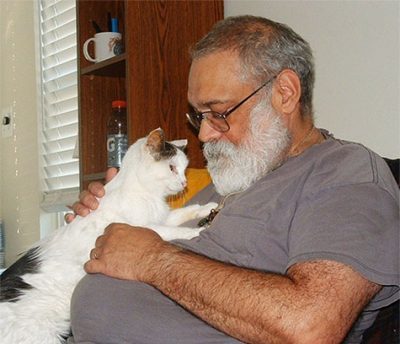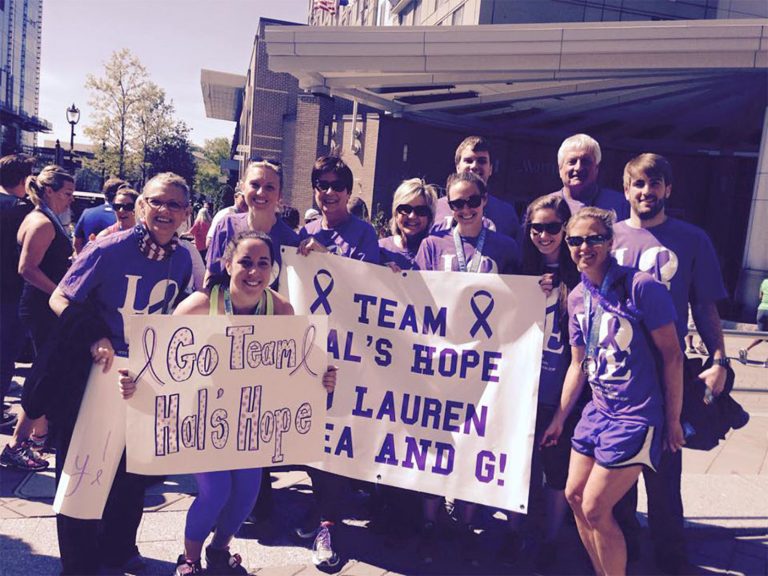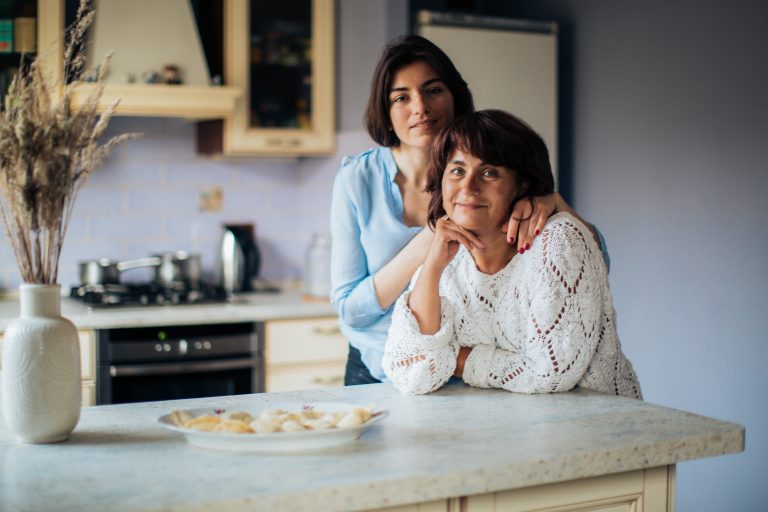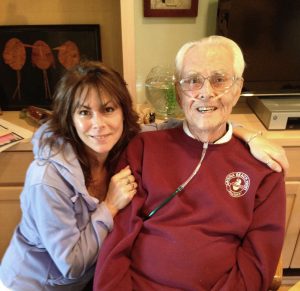Spiritual Well-being and Quality of Life for Patients Undergoing Chemotherapy
Pancreatic Cancer Blog – Commentary on Articles and AbstractsHere is where we take complex medical articles and break them down into language you and I
For over 22 years pancreatica.org has provided current, credible, and comprehensive information to those in need.
Cancer Patient’s Alliance is a 501(c)(3) non-profit organization. All donations are tax-deductible.
94% of all revenue goes towards our programs, with only 6% towards MANAGEMENT AND GENERAL EXPENSES.
Diagnosis – stage, location of tumor, initial prognosis: The final set of tests were on 10 May 2015, including a biopsy. On 14 May I received a diagnosis of an adenocarcinoma tumor in the head of the pancreas, on the side closest to the bile ducts. Staging was IB (T2 N0 M0 – 2.5 cm, no nodes involved, no other body mass involved). Initial prognosis was a possibility of a good outcome as the tumor was well-defined and confined, without blood vessel involvement over the size of capillaries. The surgeon did not guarantee a cure.
Chemo – how long; radio how long (details will be covered later): Chemo was from mid-July to mid-December 2015. There has been no radiation, before or after the Whipple.
Context of your life – where you live, family situation, any other related medical: I live in Saint Marys County, Maryland, about 90 miles south of Baltimore. I am married (almost 37 years), have no children and live in a detached, single-family home. I am a veteran of the USAF Reserve (83 – 92), my wife is also a veteran (USAF 81 – 94)…have lived, pretty much by ourselves the whole time (except our cats). I do have a college degree, Bachelor’s on Management. We do have friends with whom we socialize. We have good relations with our family, though we only see them a couple times a year due to distance. They are mostly up in New England, some are elsewhere in the US.
I have never been out of work for more than a month or two at a time, been with my current employer since October 2002. I am on a permanent ADA accommodation for light duty and limited hours.
I had a mild case of polio as an infant, from the vaccine my mom said. I also had measles, mumps, chicken pox, German measles and whooping cough as a child. Tonsils came out at age 5. I have also been exposed to, but did not develop, typhus and cholera. I have had viral pneumonia twice, December 1992 and December 1993. I had severe bronchitis many times, as well as mild bouts with flu.
Major health problem other than the cancer” I have a pacemaker (implanted April 2008, replaced October 2016) as a result of asymptomatic syncope the first few months of 2008. Diagnosis was sinus arrests, but not sick sinus syndrome. I have taken medicine for mild hypertension since then.
I have taken Omeprozole for GERD since the summer of 2014.
I have arthritis, tendinitis or bursitis in most joints, pain is handled by OTC analgesics. I have dislocated both shoulder, broke my left hand and dislocated my left ankle. Too many cute, burns and bruises to detail over the course of my life. It is likely I have had several mild concussions.
I did fracture the base of my spine in a fall during the autumn of 2007. However, I did not really notice the injury and was informed of the healed fracture by the Whipple surgeon during the one year follow up in June 2016. Several years before that I had a fall from a ladder onto concrete at my job of the time, think I had whiplash as one of my past doctors said I show signs of occipital neuralgia. I also have ocular migraines on occasion.
I drank a lot over the course of my adulthood, most relevant detailed below. I started smoking at age 18, was up to 3 packs a day by my mid-20’s, tapered off to a pack a day between age 40 and 50, quit entirely at age 53. I run to moderate obesity and being fairly sedentary outside of my work hours.
Medical Journey – Diagnosis – What took you to the doctor in the first place: I had been drinking 500 – 1000 ml of 80 proof distilled spirits every day for over 15 years. I thought, from my symptoms, that I was developing cirrhosis, or gallstones: dark urine, pale stools, yellowing of my eyes and skin, abdominal aches that would sometimes manifest as what I called liver cramps. I locked the liquor cabinet, this was the 2nd to last week of March 2015, called the doctor and said I needed a complete physical with blood work because something was going wrong with my body. My 1st visit was 23 March.
How you were told, how you told loved ones: On 23 April, my PCP called about 5 PM and told me to pack an overnight bag, drop by his office for a triage sheet and get to the ER. He said my liver numbers were approaching a danger level. I called my wife to come home from work to drive me. After blood work and a CT scan, my PCP consulted with his supervisor and they determined I need testing procedures the local hospital could not provide. I was sent up the road, as an outpatient, to the University of Maryland Medical Center in Baltimore. I had an ERCP, stents were placed in the bile ducts and a biopsy was taken of a shadowy area seen on the CT. I then went back to Saint Marys Hospital to recover. This biopsy came back inconclusive. I was released to home on 4 May as my numbers were in a range that the doctors thought I would recover without further hospitalization.
On 10 May, I woke up with a 103.5F fever and the jaundice was back with a vengeance, even my hair and toenails itched. Back to the ER, attending physician got tests done, found the stents had occluded. He then called UMMC…they took me as an inpatient this time. Another ERCP, bigger stents and a 2nd biopsy. I was also prescribed Questran to help clear the bile salts from my system.
On 14 May, Dr H Richard Alexander comes in holding a sheaf of papers. He introduced himself as an oncologic surgeon, did a brief exam of me and then let us know he had the diagnosis. He was very straightforward, letting me know it was early stage and that I qualified for surgery without needing chemo or radiation beforehand. He said I had a better than even chance of a good outcome.
I let my family know via phone calls, emphasizing the early diagnosis and positive prognosis. I had lost 2 family member to pancreatic by then, my maternal grandmother and a maternal uncle, as well as my dad to lung cancer.
When/how you learned “the statistics”: I had started doing research during my 1st hospital stay and was half expecting a diagnosis of ampullary cancer. I was researching reputable web sites such as Johns-Hopkins, Mayo Clinics, Uni MD Med School, Dana Farber, and so forth. I saw that the situation could be dire, regardless of Staging.
Your initial response to diagnosis, and that of your family/friends: I was struck by fear at first, knowing that my uncle had only lived 19 days after his diagnosis, very late Stage IV. However, the words “Stage IB” rang out in my mind. Dr Alexander asked me if I had any questions. I exchanged a look with my wife and replied; “When can you clear a table and cut me?”
My wife, was as you can imagine, deeply saddened, as was my mom, other family and friends. However, as I decided right at first that this was something I could fight, my attitude lifted their spirits. This was very important, as my wife is a disabled veteran, part of which is PTSD.
I have refused to be defined by the disease.
Medical Journey – Treatment: On 21 May, my wife and I visited with Dr Alexander for a formal surgical consult. As he described the procedure, was told it would take 5 ½ – 6 hours. At the end, he asked if I wanted a second opinion. I said; “No, not if it will delay surgery.”
The afternoon of 1 June, my wife and arrived in Baltimore, checked into a hotel and waited in the lobby for my mom, sister, brother and his spouse. We had a good, late lunch at the Pratt Street Alehouse. I had a grilled portabella mushroom and mozzarella sandwich with fries and a non-alcohol beer. We then repaired to the coffee lounge in the hotel and chatted for a couple hours. I got to bed about midnight.
At 6 the next morning, checked into the hospital and made my way to the surgical prep area. Was on a bed in gown by 6:30, epidural placed by 7 AM, last I remember before surgery is my wife telling me see you later about 7:30 AM as the anesthetist started pushing the twilight drugs.
Next I remember, it’s about 5:30 PM and I’m talking with my wife. By 7 PM I’m in a regular surgical recovery room, never was in ICU. Family comes in to say hello and good night. They stayed the first couple of days after surgery. I was able to have quite a good visit each day with them.
My family members told me that Dr Alexander’s primary assistant, NP Zeller came into the waiting room every hour to let them know how things were going. After the surgery was done, Dr Alexander sat down with them for over 20 minutes to give them his opinion, which was hopeful. My mom is Italian, and is the stereotypical, very protective of her children, personality. She told me that Dr Alexander gave her hope, and for that I am eternally grateful to him.
I was sitting by Noon on 3 June, walking on 4 June, eating solid food by 8 June, went home on 10 June. Fairly normal elimination of liquid and solid bodily wastes was happening. My wife stayed in a hotel engaged by the hospital for family members and spent the majority of every day in the room or walking the halls with me.
That last day, Dr Alexander came in with his posse of Residents and Interns. He announced he had the pathology report, examined me while explaining things to his students, and then sat down next to my wife with a new sheaf of papers. I gave him a bit of a wow moment when I sat up without help.
He first told me the surgery took about 3 hours longer than he first thought, due to my “pony keg” abs and the need to call in a liver specialist. The verdict there, I have all the right parts, but my liver is put together in a non-standard way. He also said, once they had me opened up, I qualified for a modified Whipple instead of a Classic. I lost 20% of the pancreas, the gallbladder, most of the bile tree, 90% of the duodenum, some of the omentum and 29 lymph nodes.
Verdict: the tumor was re-staged to IIB (T3 NX M0 – 3.8 cm, nodes possible involved, no other body masses involved), due to size, not tissue involvement. It had grown 150% since diagnosis and was pressing against the outside of the duodenum and liver, but had not infiltrated, surgical margins were clear. 4 of the lymph nodes and 1 nerve were suspected as involved, but not confirmed. He also said it took a little extra time to excise the gallbladder, as it was adhering to the surface of the liver.
The staples came out on 23 June. I gave Dr Alexander another wow moment. I had walked 2 miles the day before. He arranged for me to get chemo at a clinic local to where I live.
Clinical trials (if): Not Applicable, had signed up with Uni MD Med School for a study, but was not asked back after the initial interview, which I had on the day the staples came out. I guess I was healing too well to be of interest.
Chemo/Radiation details: I started chemo on 15 July, had 16 infusions of Gemzar via regular IV. 2 weeks infusions, 3rd week labs only, last labs were on 22 December. I was doing well enough that a planned 17th and 18th treatment were cancelled by the oncologist after the post 15th treatment labs. I was also given Zophran via IV before the Gemzar, had no other drugs during the infusions.
I had symptoms like mild flu and lowered blood counts (particularly platelets) from the chemo. Day after, I’d sleep all day in the recliner chair, my old kitty, Miss Teia in my lap. We lost her at age 21 years 5 months on 23 November 2018. She was a good home care nurse.
Experience (physical, emotional): Physically, I lost over 50 pounds over the course of the active disease, treatment and first year of healing. I lost a lot of muscle tone and am on light duty with limited hours at work (long term ADA accommodation), started working again 9 weeks after surgery. I work at Lowe’s Home Improvement Warehouse. I get tired easier. I also think I did slide into a bout with mild, lingering depression. I did not really have any king of bout with “chemo brain.”
I have gained all the weight back, mostly as body fat instead of muscle mass. My blood sugar is of concern, A1C is right in the middle of pre-diabetic range, but has held steady the past 3 years. My PCP has me in for blood work every 6 months.
All labs and scans have come back showing no evidence of recurrence. I am now on semi-annual labs and yearly CT scans.
Medical Journey – Recovery and/or Rediagnosis: The worst lingering physical after effects are 2 incisional hernias. One is a recurrence of an umbilical hernia that was fixed during the Whipple. The other is a smaller hernia just under the ribcage at the top of the incision. Dr Alexander recommended I wait 5 years of being clear of recurrence before having more surgery. My GI doctor had a surgeon examine me when I was in for my yearly visit with her in September 2018. He said I look like a good candidate for a laparoscopic repair when ready. I also do not sleep through the night, it’s more like a series of naps. Other than that, I am much healthier than past bad habits would indicate.
Side effects/complications: Nothing much beyond what I mentioned above, main thing is the lingering tiredness.
Dietary/exercise: I try to eat better than I did before, a lot less “fast food,” more vegetables, fruits and whole grains at home. But I will not say I follow even half the guidelines for being post-cancer and trying to stay healthy. I work about 20 hours a week at Lowe’s, try to remember to get up and walk around at least a mile on the days I do not work. More strenuous activity will have to wait until I can get the hernias fixed. I also keep alcohol consumption to no more than 50 – 100 ml 80 proof or equivalent on the days I do drink, which is no more than once or twice a week. Have not had a cigarette since I quit a decade ago.
Alternative therapies, if any: Not applicable, except I do take turmeric and milk thistle with the approval of my oncologist, as well as vitamin/mineral supplements.
Rediagnosis (if): Not Applicable
Experience (physical, emotional): I have tried to maintain a positive outlook, though I do have my down days. Part of this is the way my parents, grandparents, other family and the mentors of my youth prepared me for the difficulties we will all have facing life. Another part is the innate stubbornness within my personality, a refusal to give up.
Your Care Team Experience
Medical team: Primary is the Medstar/Shah Southern Maryland practice, local hospital is Medstar Saint Marys. PCP: Dr M Patel, Oncologist: Dr M Shah, GI: Dr I Khan, Cardio: Dr A Patil
Primary caregiver(s): For most of it, my wife Anita and me.
Other family – including children: Most of our close family is in New England, northern Pennsylvania, California and Florida. Other than that, we have cats, 1 older girl (Miss Blue, who we adopted at 12 years 5 months in January 2019) and 2 boys (Cooper and Buff, who just turned 5).
Friends/neighbors/perfect strangers: Our next door neighbor Chris has become a good friend and has helped us with yard work and cat sitting. Other neighbors have helped with yard work and heavy lifting around the house. I have received well wishes from hundreds of folks with whom I have corresponded over the years, particularly from within my faith community.
Most Helpful Resources
People: Dr Uradomo and his team who did both ERCPs and biopsies, Dr Miller and his supervisor Dr Light, who provided the post 2nd ERCP medical care, Dr Alexander and his team who did the Whipple. Dr Dixon, who provided most of the after-Whipple care. Dr Shah, my oncologist…websites as I mentioned above, plus the NIH websites. I will also give a big Hoorah to all the nurses, patient care technicians, cleaners, transport people, food service associates, admin and clerical folks…
Support groups (physical): Not applicable
Websites/listservs/online communities: 3 different Facebook survivors’ groups. …websites as I mentioned above, plus the NIH websites. Caring bridge, Pancreatic Cancer Action Network, Cancer Compass…
Books: “The Meditations” by Marcus Aurelius
Attitudes: My stubbornness and unwillingness to give in.
Why You “Beat the Odds” Early diagnosis, because I decided that my body was telling me something was wrong.
What your doctors would say: Steven is, insofar as the disease is concerned, a pretty boring patient. However, he is one of the better informed, compliant and non-complacent patients we have.
What you say: I have a disease, it does, not, have, me.
Special Inquiries: Nothing I can think of at this time.
Importance of hope: I think back to a quote from one of the Edgar Rice Burroughs John Carter of Mars stories where he is facing impossible odds (as usual) and his companion asks why he is confident and has hope; “I still breathe.” Hope is the engine of trying to overcome obstacles.
Importance of humor: If you cannot see light in the dark, you’ll not get out the other side.
Importance of spirituality: The Holy as I understand it gave me the Gifts of Life, Mind and Will at birth. They will judge how I used them in a worthy manner. How I use them is up to me. I give the Holy thanks for those gifts. That is part of my life every day, as well as thanking the Spirits of my ancestors.
Advice To other patients: Throw embarrassment out the window for you must be able to tell those who care for you everything that is happening within you, physical, emotional and mental.
To primary caregivers: Take time for yourself.
To well-meaning others (family, friends, neighbors): Your well wishes are a salve for my spirit and fuel the engine of hope. I do not care if you actually “do anything you can,” for me, the Intent is a big help.
How This Journey Changed Your life, and/or other Last Thoughts … Frankly, I do not think I have been much changed, save that I try harder to treat everyone in a courteous and friendly manner. Having gone through what I did, one can never know how bad a day anyone else is having, so one tries to be a salve for their soul.

James Abbruzzese, MD Chief, Medical Oncology Duke University
Markus Büchler, MD Chairman, Surgery Heidelberg University, Germany
Ralph Hruban, MD Director, GI / Liver Pathology Johns Hopkins University
Eileen O’Reilly, MD Associate Director for Clinical Research – Memorial Sloan-Kettering Cancer Center
Margaret Tempero, MD Chief, Medical Oncology University of California at San Francisco
All DONATIONS are tax-deductible
Our Philosophy About Pancreatic Cancer
Pancreatic cancer is a serious disease. Taking an aggressive rational stance at the earliest possible time, supported by the best medical team, and treated in the most appropriate manner gives the best chance for survival.
We believe in strong patient-physician bonds, scientifically-based treatment, and that comfort can come from knowing that everything that reasonably can be done – is being done.
That the best approach is meeting cancer of the pancreas head-on and armed with the best available information.

Regular giving can be an opportunity to pay tribute in honour of a loved one. Your monthly gift will go directly to promoting awareness, increasing education, furthering pancreatic cancer research aimed at early diagnosis and, helping patients and families impacted by the effects of pancreatic cancer.
Simply select “Monthly” after choosing the amount you would like to give on the donation form.

Most of our fundraisers, supporters, and volunteers, have been in one way or another, personally effected by this disease. We want to acknowledge what hardships you may have gone through (or are currently facing) and sincerely thank you for visiting our site!
Join us in our effort to fight pancreatic cancer. Donations go directly to promoting awareness, increasing education, furthering pancreatic cancer research aimed at early diagnosis and, helping patients and families impacted by the effects of pancreatic cancer. All Donations are tax-deductible.

Making IMPACT for Pancreatic Cancer Together!

MONTHLY MEMORIAL GIFTS:
Support Pancreatic Cancer Research!
Regular giving can be an opportunity to pay tribute in honour of a loved one. Your monthly gift will go directly to promoting awareness, increasing education, furthering pancreatic cancer research aimed at early diagnosis and, helping patients and families impacted by the effects of pancreatic cancer.
Simply select “Monthly” after choosing the amount you would like to give.
Cancer Patients Alliance is a 501(c)(3) non-profit. Initiatives include, ToFightCancer.com and Pancreatica.org. All Donations are tax-deductible.
Pancreatic cancer is expected to become the 2nd leading cause of cancer-related death by the year 2020. There are many reasons why the outcome for pancreatic cancer patients is much bleaker than for most other cancer types. There are no reliable methods to detect the disease early, and there are very few effective treatment options.
| There remains a dire need for more research and an increase in focused funding for pancreatic cancer. Your Donation will go directly to promoting awareness, increasing education, and furthering pancreatic cancer research aimed at early diagnosis. |
This year an estimated 57,600 Americans will be diagnosed with pancreatic cancer. Approximately 47,050 Americans are expected to die from the disease. There are many reasons why the outcome for pancreatic cancer patients is bleaker than for most other cancer types. There are no reliable methods to detect the disease early, and there are very few effective treatment options. Which is why we are so focused on supporting research for early diagnosis.
Together with You our Mission is to promote awareness, increase education, and further pancreatic cancer research aimed at early diagnosis.


CREATE YOUR OWN FUNDRAISER FOR PANCREATIC CANCER !
Create your own fun, choose something you already love to support pancreatic cancer! Simply set up your participation page, include the details of your fundraiser on your page, and get the word out!
Shop to Support Pancreatic Cancer !
Amazon donates 0.5% of the price of your eligible AmazonSmile purchases to help fight pancreatic cancer!
AmazonSmile is the same Amazon you know. Same products, same prices, same service. Simply use our Link to start shopping!
Best of the Pancreatic Cancer Blog
Pancreatic Cancer Blog – Commentary on Articles and AbstractsHere is where we take complex medical articles and break them down into language you and I
Pancreatic Cancer Blog – Commentary on Articles and AbstractsHere is where we take complex medical articles and break them down into language you and I
Pancreatic Cancer Blog – Commentary on Articles and AbstractsHere is where we take complex medical articles and break them down into language you and I
This study is basically looking at whether aspirin can make a chemotherapy drug called gemcitabine work better for pancreatic cancer. You’ve probably heard of aspirin; it’s the stuff you take for a headache or fever.
© 2024 Pancreatica. All rights reserved | Privacy Policy
312 Fountain Avenue, Pacific Grove, California 93950 | Phone: (831) 658-0600 | Fax: (831) 658-0518 | participate@tofightcancer.com